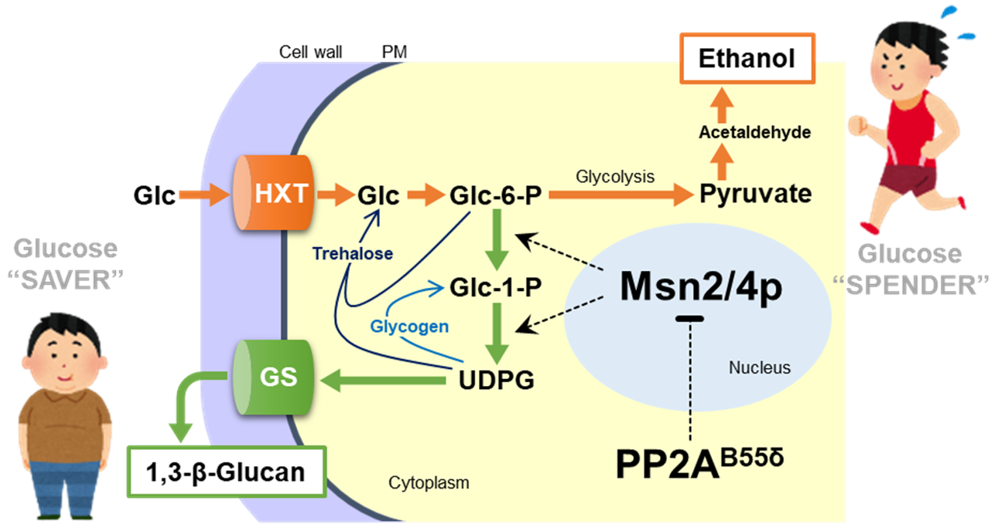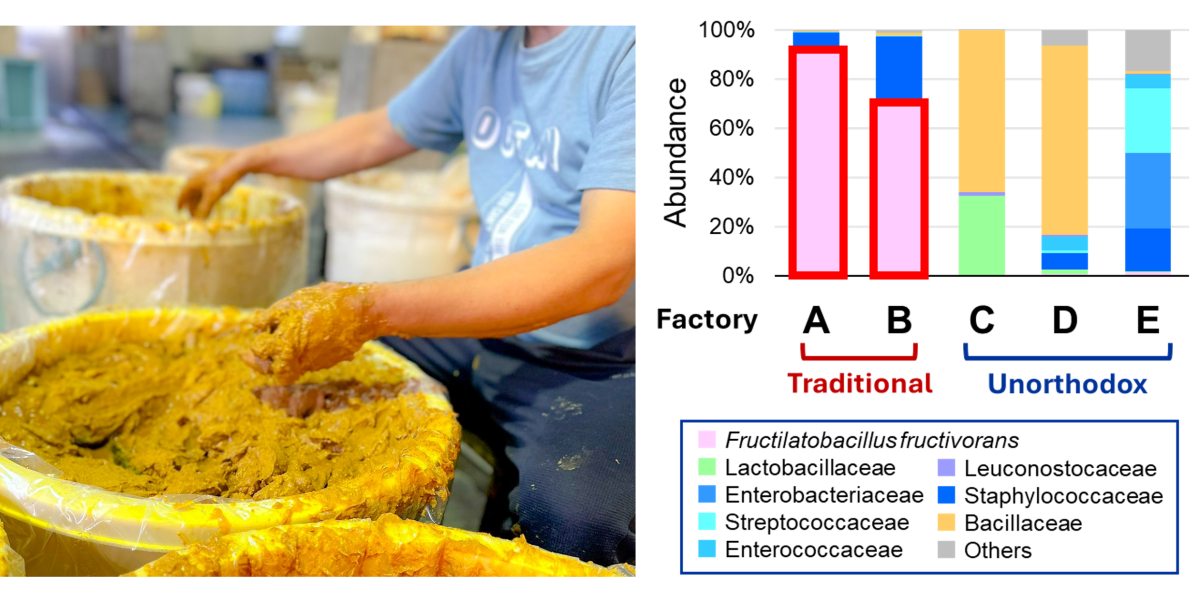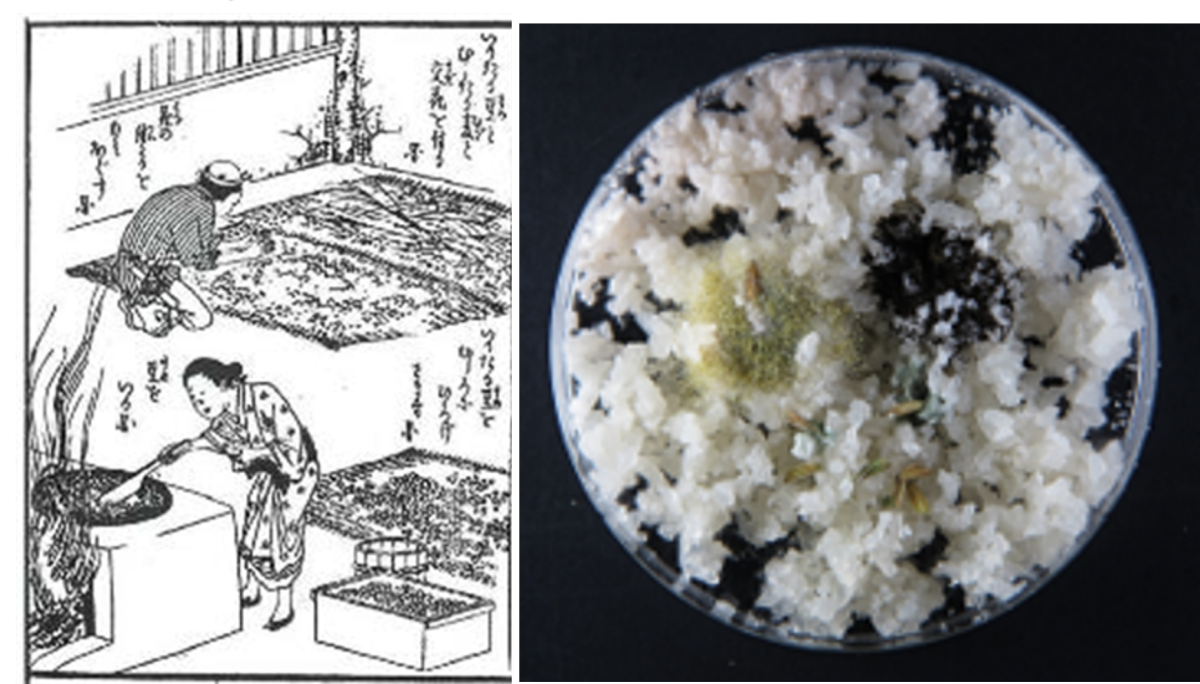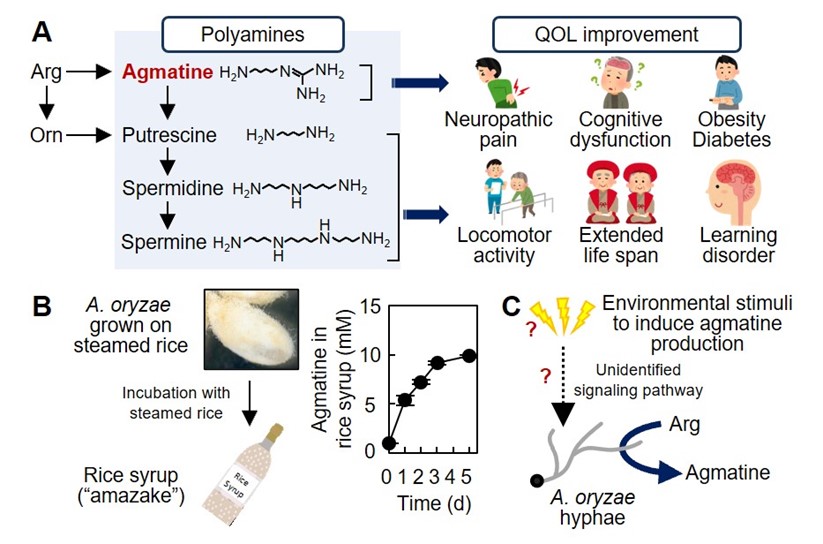
1. Establishing Alcoholic Fermentation Design Technology
Yeast alcohol fermentation has been utilized since ancient times, but its modification remains highly challenging. We focus on the unique characteristics of sake yeast with high fermentation ability and are advancing technology development to contribute to the progress of the fermentation and brewing industry.

2. Microbial Ecosystems in Traditional Fermented Foods
Traditional fermented foods have been nurtured over a long history and are composed of a “microbial society” where diverse microorganisms interact. We focus on unexplored fermentation phenomena and aim to elucidate the fundamental principles of food fermentation.

3. Origins of Fermented Foods through Plant Microorganisms
The origin of microorganisms used in the production of fermented foods remains a mystery. By exploring the process through which microorganisms on plant surfaces contribute to food fermentation, we aim to revisit traditional fermentation culture and explore the potential for technological innovation.

4. Health-Promoting Effect of Fermented Foods by A. oryzae
To scientifically elucidate the health benefits of Japanese fermented foods, we focus on agmatine, a functional compound produced by Aspergillus oryzae. We are working to uncover its molecular mechanism and develop technologies that enhance the functionality of fermented foods and promote healthy longevity.
